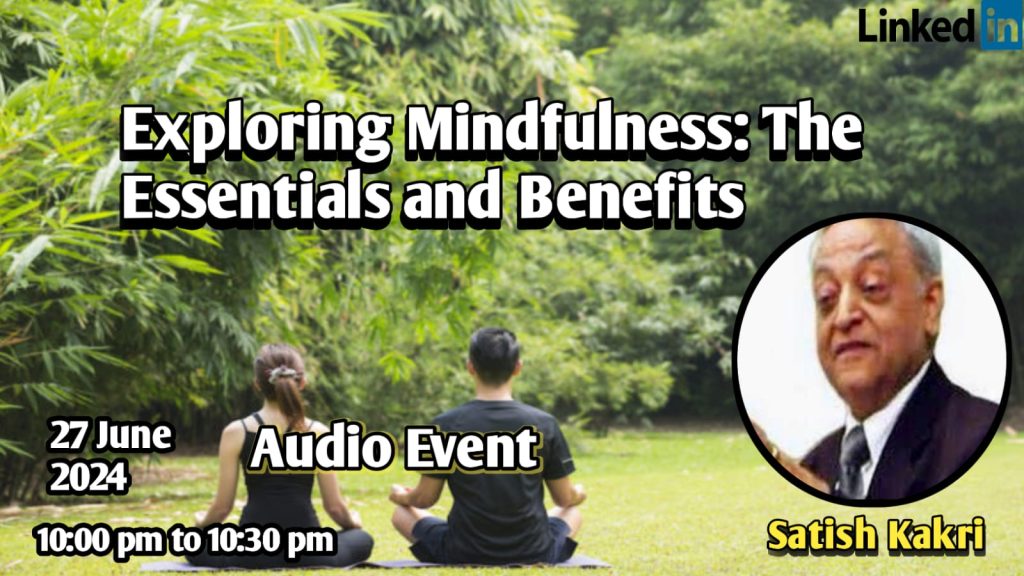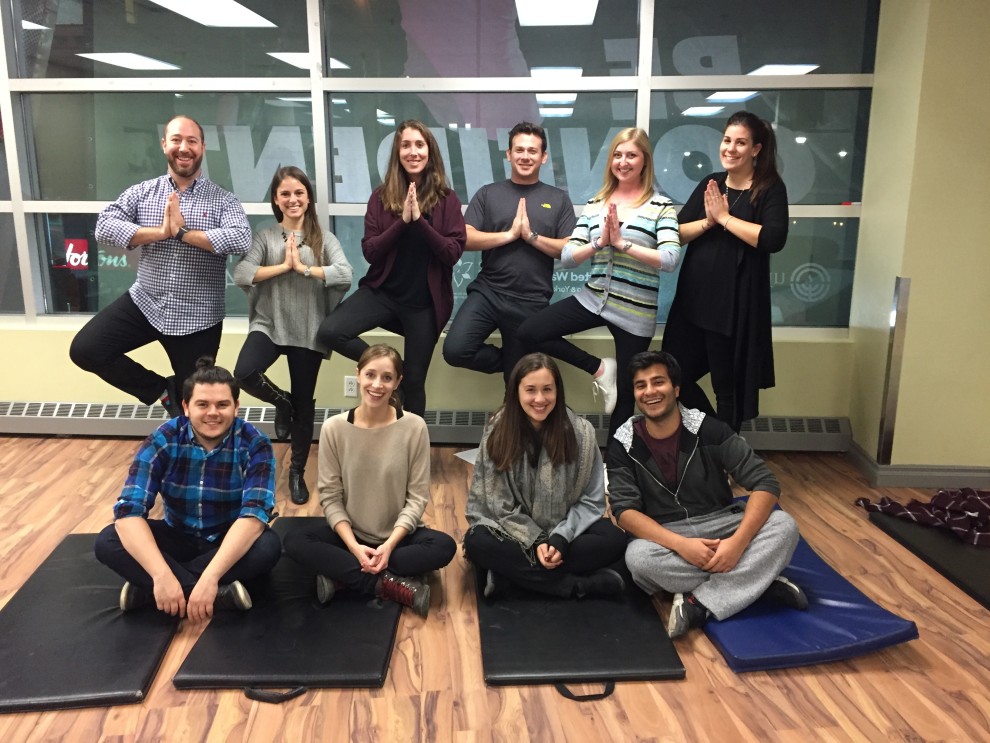1) What is Mindfulness?
Mindfulness is the practice of being fully present and engaged in the current moment, aware of your thoughts, feelings, and sensations without judgment. It involves paying attention to the present experience with openness and curiosity. Mindfulness can be cultivated through various techniques, including meditation, breathing exercises, and mindful movement, such as yoga.

Key aspects of mindfulness include:
Awareness: Being conscious of what is happening around you and within you.
Non-judgment: Observing thoughts and feelings without labeling them as good or bad.
Present Moment: Focusing on the here and now rather than dwelling on the past or worrying about the future.
Acceptance: Embracing your current experience without trying to change it. Practicing mindfulness has been shown to have numerous benefits, including reducing stress, improving emotional regulation, enhancing concentration, and promoting overall well-being.
2) How to practice mindfulness?
Practicing mindfulness involves focusing on the present moment and accepting it without judgment. Here are some effective ways to incorporate mindfulness into your daily routine:

Mindful Breathing:
Sit or lie down in a comfortable position.
Close your eyes and take deep breaths.
Focus on your breath as it goes in and out. Notice the sensation of the air entering and leaving your body.
If your mind wanders, gently bring your focus back to your breathing.
Body Scan:
Lie down comfortably and close your eyes.
Starting from your toes, bring your attention to each part of your body, moving upwards to your head.
Notice any sensations, tension, or discomfort. Acknowledge them without trying to change anything.
Mindful Walking:
Walk slowly and focus on the movement of your feet and legs.
Pay attention to the sensation of your feet touching the ground.
Notice your surroundings, the sounds, and the feeling of the air.
Mindful Eating:
Eat slowly and focus on the taste, texture, and aroma of your food.
Notice the colors and shapes of the food on your plate.
Chew slowly and savor each bite.
Meditation:
Set aside a few minutes each day for meditation.
Sit in a quiet place, close your eyes, and focus on your breathing.
When thoughts come, acknowledge them and let them go, returning your focus to your breath.
Gratitude Practice:
Take a moment each day to reflect on what you are grateful for.
Write down a few things you appreciate, no matter how small they may seem.
Mindful Listening:
When talking to someone, give them your full attention.
Listen without interrupting or planning your response.
Notice the speaker’s words, tone, and body language.
Mindful Observation:
Spend a few minutes observing something in your environment (e.g., a tree, a flower, or a candle flame).
Notice the details, colors, shapes, and movements without judgment.
Mindful Journaling:
Write about your thoughts and feelings without censoring yourself.
Reflect on your experiences and emotions.
Incorporate Mindfulness into Daily Activities:
Practice mindfulness during routine activities like washing dishes, showering, or brushing your teeth.
3) What are the benefits of mindfulness?
Mindfulness, the practice of being fully present and engaged in the moment, offers a range of benefits for mental, emotional, and physical well-being. Here are some key benefits:

Reduces Stress: Mindfulness helps lower levels of the stress hormone cortisol, leading to decreased stress and anxiety.
Improves Focus and Concentration: Regular mindfulness practice enhances attention span and the ability to concentrate on tasks.
Enhances Emotional Regulation: Mindfulness promotes better control over emotions, reducing emotional reactivity and increasing resilience.
Boosts Mental Health: It can reduce symptoms of depression, anxiety, and other mental health issues by promoting a more positive outlook and reducing negative thought patterns.
Improves Physical Health: Mindfulness has been linked to lower blood pressure, improved sleep quality, reduced chronic pain, and better immune function.
Promotes Self-Awareness: By paying attention to thoughts and feelings without judgment, mindfulness increases self-awareness and understanding of oneself.
Improves Relationships: Enhanced empathy, compassion, and communication skills through mindfulness lead to better relationships and social interactions.
4) How Mindfulness is related to Personal Success?
Mindfulness can significantly contribute to personal success in several ways:

Improved Focus and Clarity: Mindfulness practices, such as meditation, help enhance focus and concentration. This heightened focus allows individuals to work more efficiently, make better decisions, and stay committed to their goals.
Stress Reduction: Mindfulness reduces stress by promoting relaxation and cultivating a non-reactive mindset. Lower stress levels lead to better emotional regulation, which in turn improves overall well-being and resilience in facing challenges.
Enhanced Emotional Intelligence: Mindfulness fosters self-awareness and empathy. By understanding one’s emotions better and being attuned to others’ feelings, individuals can navigate social interactions more effectively, leading to better relationships and collaborative success.
Increased Creativity: Mindfulness encourages divergent thinking and the ability to see situations from multiple perspectives. This can spark creativity and innovation, crucial elements in problem-solving and entrepreneurial endeavors.
Better Decision-Making: By practicing mindfulness, individuals can cultivate a more balanced approach to decision-making. They become less reactive to impulses and emotions, making decisions that are more thoughtful, strategic, and aligned with their long-term goals.
Thanks for reading.